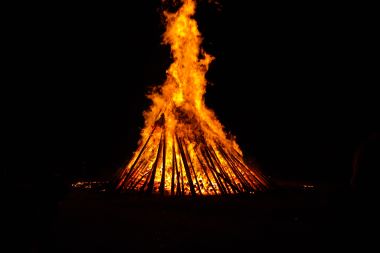Scottish Parliament's Burning Issue - a Bill to Pardon Witches.

Note: As of 2024 this bill appears to have been withdrawn. However, it's worth reading this to be informed about the sorts of foolishness that attention-seeking people are capable of.
There's a distinction between acknowledging historical injustices and indulging in sheer absurdity. The latter often emerges when people exploit the suffering of past victims to advance their present-day agendas.
According to an ABC news report, there was a bill before the Scottish parliament aimed at pardoning those who were executed as witches under the Witchcraft Act between 1563 and 1736, a majority of whom were women. In the context of 2023, this hardly appears to be a burning issue. The rationale behind this action is the assertion that it supports contemporary women in their struggle against misogyny.
However, we have the right to question whether this claim holds any more truth than the allegations of witchcraft did in medieval times. Undoubtedly, those advocating for this measure genuinely believe they are protecting today's women from abuse and striving for genuine gender equality, at least by their own definition. In their minds, they are acting to shield females from harm inflicted by males.
Yet, we must ask: what makes these activists of the current era believe they are infallible, immune to the same sort of misguided beliefs that fueled witch hunts in the past? Have their emotions driven them to pursue a folly akin to hunting witches? We are already well-aware of the harm inflicted on women and the need to combat it; is dwelling on ancient practices truly enlightening us further?
Much of what transpires nowadays is driven by the desire for media attention and approval, often referred to as 'virtue signaling.' It could also be accurately described as stirring up trouble for the sake of it, all to capitalize on the emotions and sentiments stirred up. This might sound harsh, but the crucial question is: how essential is this action in reality?
Applying the same logic currently employed, should we raise awareness of the child laborers as young as six who toiled twelve hours a day in early factories for a pittance to support children today? Would it make sense to help struggling young men by fixating on the fact that, in the era of sailing ships, many youths were forcibly conscripted into naval service by press gangs at seaports, not to mention those conscripted into armies, often to die in wars they knew little about?
I find it difficult to believe that the number of women and girls who suffered throughout history surpasses the number of boys and men who faced various forms of hardship.
Today, we are grappling with the economic fallout of the pandemic, the resurgence of war in Europe, the urgent need to transition from fossil fuels to renewable energy to combat climate change, unaffordable housing, rising inflation, soaring national debts, growing wealth inequality, and the rampant rise of cybercrime. Societies in advanced countries are becoming increasingly violent.
In the face of all these pressing concerns, legislation to pardon witches appears to be nothing more than a stunt, likely intended for media attention. Surely, we have far more urgent issues that demand immediate attention.
Australian Broadcasting Commission report 30th Nov. 2022
Photo by Hans on all-free-download.com
Note: AI may have been used for editing purposes only. All intellectual content is completely the work of the author.
- - ArgueGuru - -
